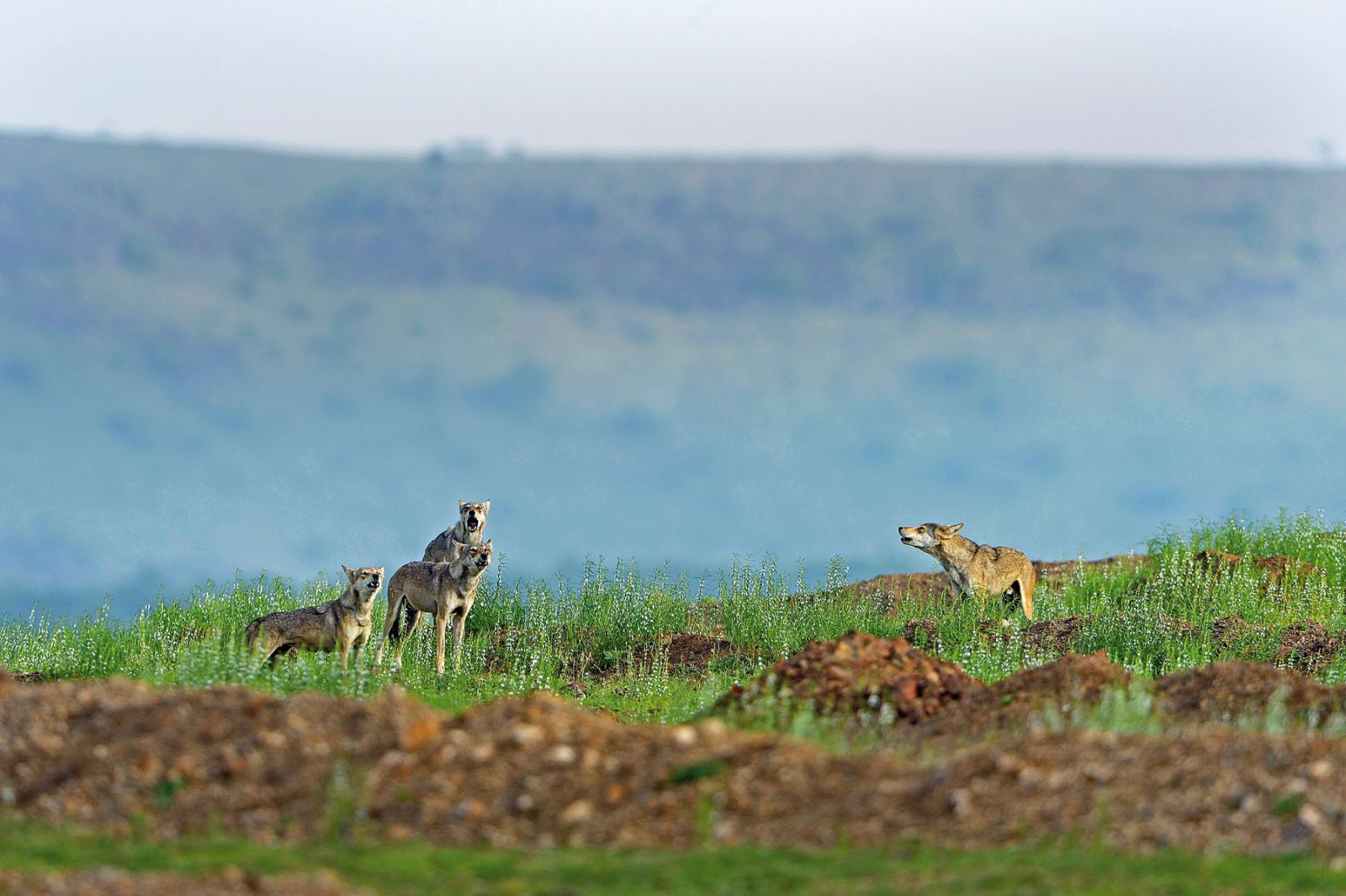In the ceaseless struggle of who dominates whom in this world, we may find ourselves questioning if we, much like Buck, have forgotten what it means to be truly wild. Are we so entrenched in the comforts of modern life that we have lost touch with our primal instincts? How do we define this state of perpetual confusion about who we are? Whether we are in the untamed wilds or amidst the busy chaos of city life, one thing remains constant: survival. The age-old saying “survival of the fittest” may seem trite, but its truth endures. As humans, we may consider ourselves superior to creatures like Buck, the dog from The Call of the Wild, yet this superiority gives us the privilege of adapting to different environments and surviving through hardships. We rarely face the challenges of fighting for survival with every breath we take.
Living in the comfort of our controlled environments, we often forget the raw nature of survival. Whether in the wilderness or a bustling city, our basic instincts—survival—remain paramount. The truth is, surviving in the wild is a whole different ball game. I’ve spent close to three decades observing wildlife and the national parks of India, and it’s no easy task. The jungle demands adaptation. One must either adapt or face the consequences. In the wild, species such as the tiger have honed the art of adaptation, marking new territories and asserting their dominance. The jungle knows no mercy, and the jungle’s rulers, like the tiger, are relentless in maintaining their rule. This comes with immense responsibility, much like how we, as humans, must understand the magnitude of our dominance over nature.

As humans, we have been entrusted with the responsibility of conserving the wilderness and its creatures. Our national parks, rich in biodiversity, have not been given to us as mere gifts but at a cost. Mother Nature has bestowed these blessings upon us, yet this responsibility is not without its burdens. It’s our duty to educate future generations about the art of survival, to teach them that our own existence, much like that of a tiger in the wild, is tied to understanding and respecting our environment. Just like Buck, who had been domesticated for too long to remember how to thrive in the wild, humans often lose touch with their own primal instincts. But when the situation demands, we all rise to meet the challenge. Survival is about understanding the world around you and being prepared to face whatever comes your way.
Growing up in New Delhi, Sharad Vats had always dreamed of playing cricket for India. Little did he know that a simple holiday in 1990, where he encountered his first tiger, would ignite a passion that would change the course of his life. This singular moment sparked a deep connection with wildlife, leading Sharad to dedicate his life to understanding the behavior of tigers. His career as a wildlife photographer gave him unparalleled insights into the natural world, particularly the ways of the tiger, which would go on to influence not just his career but his entrepreneurial pursuits as well.
With a focus on conservation through tourism, Sharad founded Nature Safari India Pvt Ltd to promote the conservation of tigers and their habitats. His commitment to protecting these magnificent creatures led him to establish one of India’s premier jungle lodges in Kanha National Park in 2006. Over the years, Sharad has come to believe that the tiger, in its majestic existence, offers valuable lessons on leadership—lessons that can be applied not just in the wilderness but in the realms of business and everyday life.
The tiger, with its silent and calculated approach to its surroundings, teaches us how to lead. It knows when to make its presence felt and when to lay low, much like a great leader in business who understands the importance of timing. The tiger also teaches resilience, the ability to adapt, and the value of territory—principles that are as important in leadership as they are in the wild. Just as the tiger rules its domain with confidence, so too must leaders learn to navigate the complexities of their own territories, making decisions that reflect strength and foresight.

Sharad’s journey, both as a wildlife enthusiast and an entrepreneur, is a testament to the deep wisdom one can derive from the animal kingdom. The tiger, revered and feared in equal measure, offers a mirror to those who wish to understand leadership at its core. A new book by Sharad Vats delves into the management and leadership skills one can learn from observing the tiger’s behavior. This work provides invaluable insights for anyone looking to apply the tiger’s leadership qualities in their own professional or personal life.
The concept of “Survival of the Fittest” is more than just a biological idea. It is a guiding principle that applies to all aspects of life, from the most remote corners of the jungle to the busy streets of the city. The tiger, as a symbol of strength and dominance in the wild, is a perfect example of how adaptation and survival instincts play crucial roles in determining success. The jungle teaches that only those who can adapt to changing circumstances thrive. For humans, this means understanding the dynamic and unpredictable nature of both the business world and the world we inhabit, making strategic decisions that lead to success and sustainability.
As we move forward, let’s reflect on the lessons of the wild and understand that we are all connected to the primal forces of nature, whether we are aware of them or not. Just as Buck had to rediscover his place in the wild, so too must we reconnect with the world around us, acknowledging that our instincts—our survival skills—are vital to overcoming challenges. In the face of adversity, we all have the potential to rise, to adapt, and to succeed.
For those interested in further exploring the ways in which the tiger’s behavior can inspire leadership, Sharad’s work serves as both an inspiration and a blueprint. Whether through his observations in the wild or his entrepreneurial endeavors, Sharad Vats has demonstrated that the path to success is often through understanding the inherent qualities of the natural world.
Sharad’s legacy, from his tiger safaris to his jungle lodge in Kanha, embodies a deeper message: that leadership, survival, and success are not just about conquering the world around us, but understanding and respecting the forces that govern it.

